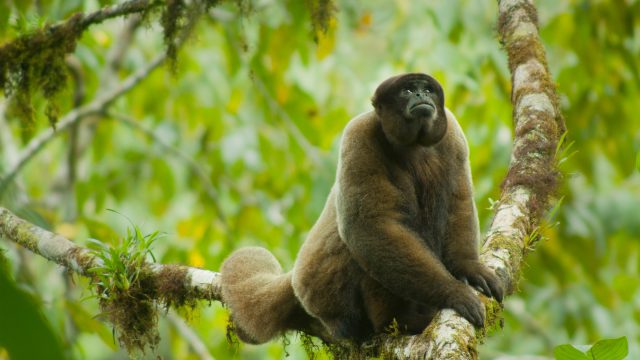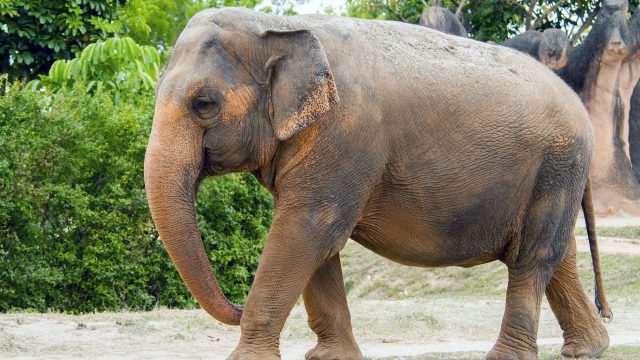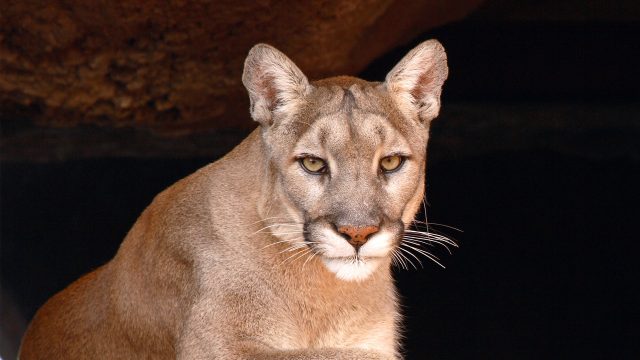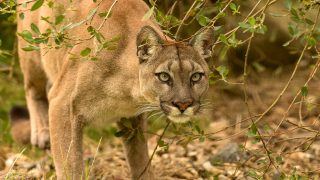
Argentine Court Declares Cougar a “Subject of Rights”
By Nicole Pallotta, PhD, Senior Policy Program Manager
Contents
Summary
Summary: Building on the landmark case of Sandra the orangutan, an Argentine court has declared a cougar to be a “subject of rights,” providing for her “total freedom” while — in a move noted by some to be contradictory — also granting custody of her to the Buenos Aires Eco-park. In reaching its decision, the court highlighted the special legal status of animals, observing that animals can be classified as “victims” under the law. This is the latest ruling in Latin America to formally recognize an individual animal as a subject of rights, and is part of a global trend toward recognition of animals as legal subjects.
In July 2022, building on previous animal rights rulings — including the landmark case of Sandra the orangutan1 — a court in Buenos Aires, Argentina, declared a cougar to be a “subject of rights.” This phrase is used as a synonym for “legal person” by many Latin American judges.2
The case began in 2019, when police discovered a 6-month-old cougar cub3 tethered in the front yard of a human residence. Because private possession of wild animals is illegal in Argentina, authorities seized the cougar, who was given the name Lola Limon, and eventually transferred her to the Buenos Aires Eco-Park.4 Three years later, her case was brought to court by a public prosecutor in the environmental affairs unit of the attorney general’s office, who requested:
That the sentient being of the species puma concolor be declared a subject of rights . . . and that she be granted her complete freedom, free of any measure or legal restriction, with definitive legal custody granted to the Interactive Ecopark of the Autonomous City of Buenos Aires. (p. 2)
Judge Carla Cavaliere granted both requests. While custody was given to the Buenos Aries Eco-Park’s Special Projects Unit, which runs a conservation program, the ultimate goal was to return Lola Limon to her natural habitat.
Analysis of Animals’ Legal Status
In her ruling, Judge Cavaliere noted that the “protection, conservation, reproduction, re-population and rational use” of wildlife is of public interest under Argentine law. However, given this was a criminal case “in which an individual animal from a protected species of wildlife was rescued,” she must decide Lola Limon’s destination, which required an analysis of her legal status.
Therefore, an interpretation of the legal status of animals, in this case the puma “LOLA LIMON”, must be conducted that enhances the safeguards of her rights and allows the case to be decided under this viewpoint. (p. 4)
Judge Cavaliere noted it was impossible to find a satisfactory answer in the Civil and Commercial Code of Argentina because it classifies animals as “movable goods,” without distinguishing them from inanimate objects.5 Thus, she based her analysis on several other legal sources, including the constitutions of both Argentina and Buenos Aries; the 1977 Universal Declaration of Animal Rights; Argentine cruelty law; jurisprudence that “has highlighted the special status granted to animals;” and local law regulating the eco-park, which codifies its mission to reinsert rescued wild animals into their natural habitat.
The relevant constitutional provisions, found in both the city and national constitutions, pertain to the right of all inhabitants to a “healthy, balanced environment” and their duty to preserve it for future generations. Additionally, the Buenos Aries constitution provides for “the protection of urban wildlife and the respect for their life that ensures their health, prevents cruelty and controls their reproduction with ethical methods” (p. 5).
Judge Cavaliere also observed that animals can “be classified as ‘victims’ of acts of cruelty” under Argentine law. Then, looking beyond Argentina, she cited the Universal Declaration of Animal Rights of 1978, which states that “all animals are born with an equal claim on life and the same rights to existence . . . [and] are entitled to the right to respect, attention, care and protection from humankind”6 (p. 5).
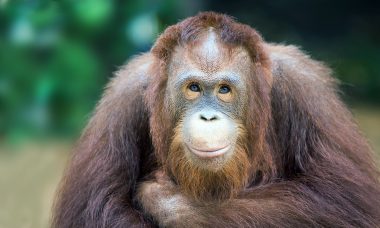
Next, Judge Cavaliere turned to jurisprudence that “has highlighted the special status granted to animals,” citing the well-known case of Sandra the orangutan, in which a court declared her to be a nonhuman person with legal rights.
She also noted that in Sandra’s case, the appeals court denied an attempt to reverse habeas corpus, holding that “based on a dynamic, non-static legal interpretation, animals must be recognized as the subject of rights, therefore non-human subjects (animals) are holders of rights” (p. 5).
In addition, Judge Cavaliere cited another appeals court decision in Sandra’s case, which held that animal law requires a proactive approach from the government and that the protection of animals relies upon recognition of their fundamental rights—which often coincide with human rights:
Animal Law involves not only the law, and its different branches, but also requires a proactive approach from the States in terms of environmental policy. The protection of animals extends from their consideration as subjects of rights and, therefore, the recognition of fundamental rights related to animals, many of which coincide with those recognized for human beings, to their identification as an essential part of our biodiversity and sustainable development. (p. 6)
Finally, Judge Cavaliere cited local law regulating the eco-park, which codifies its mission to, among other objectives, contribute to the conservation of biodiversity and work to rehabilitate and reinsert rescued wildlife back into their natural habitat.
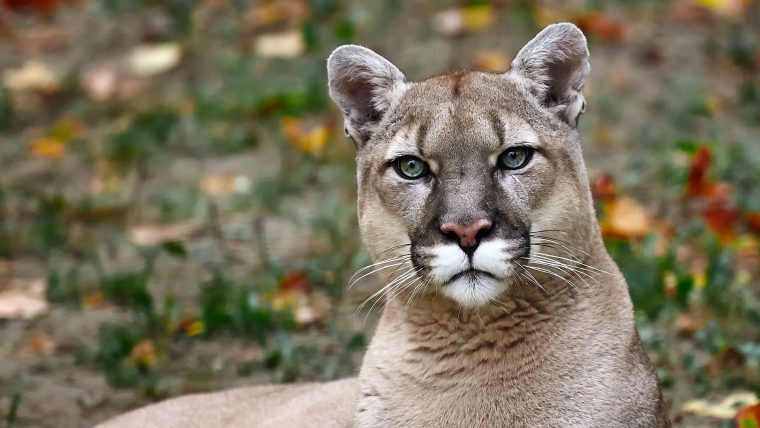
Based on this array of legal sources, Judge Cavaliere issued her decision:
- TO DECLARE THE non-human animal named “LOLA LIMON” . . . which is currently in the Interactive Ecopark of the Autonomous City of Buenos Aires, TO BE A SUBJECT OF RIGHTS, providing for its total freedom, free of any legal measure or restriction;
- TO GRANT definitive custody . . . to the Special Projects Unit (UPE) of the Interactive Ecopark of the Autonomous City of Buenos Aires. (pp. 7-8)
Total Freedom or Human Custody?
Analyzing the significance of the ruling for Palabras del Derecho (“Words of Law”), animal law attorney Andres Gil Dominguez noted its positive contribution to a growing body of animal-forward jurisprudence that challenges anthropocentrism in law:
At this point, the ruling means a new contribution to the progressive jurisprudential development around non-human animals that in a transhumanist way deconstructs the anthropocentric bases of the legal system. . . . The category “subject of law” is a legal construction that considers the sentience of non-human animals to be morally relevant in order to grant them ownership of certain rights and their respective guarantees of effective protection.
However, he was also critical of the apparent contradiction in the ruling between providing for Lola Limon’s “total freedom, free of any . . . restriction” while also granting custody of her to the eco-park, ostensibly for conservation goals.
The ruling specified custody would be given to the facility’s pilot conservation program, which among other things may harvest her embryos for reproduction purposes. Lamenting that the ruling did not prioritize Lola Limon’s freedom, Dominguez noted that she was victimized by human actions twice: first when she was confined at a human residence and now by the custody ruling, which will confine her to the eco-park indefinitely:
Now a new situation of victimization is added – the judicial one – when she is confined definitively in the Ecopark for the purpose of being subjected to a program dedicated to the conservation of South American feline species, through which she can be used as an experimental model of specimens of the puma concolor species.
There is a clear logical break between the declaration of her as a subject of rights, the provision of her ‘total’ freedom and the concreteness of the guardianship. Lola Limón has the right to develop her life plan in a suitable habitat according to the particularities that she presents. It could be a national park, a refuge, a sanctuary, a refuge or ultimately the Ecopark (without having to be subjected to a program of this kind), but always respecting her sovereignty . . .
Lola Limon’s ultimate fate and whether she will be reintroduced to the wild at some point is unclear. Therefore the ruling is mixed from an animal rights standpoint. However, recognition that Lola Limon is a “subject of rights” (or, synonymously, “nonhuman legal person”), grounded in part in the previous landmark decision in Sandra the orangutan’s case, may be interpreted with optimism as it helps build a foundation for future jurisprudence challenging the entrenched anthropocentrism of legal systems.
Recognition of Animals as Legal Subjects: a Global Trend
This is the latest court in Latin American to formally recognize an individual animal as a subject of rights. Earlier this year, in a sweeping ruling, the Constitutional Court of Ecuador found that individual wild animals — and specifically a monkey named Estrellita — are protected under the country’s “rights of nature” constitutional provision.
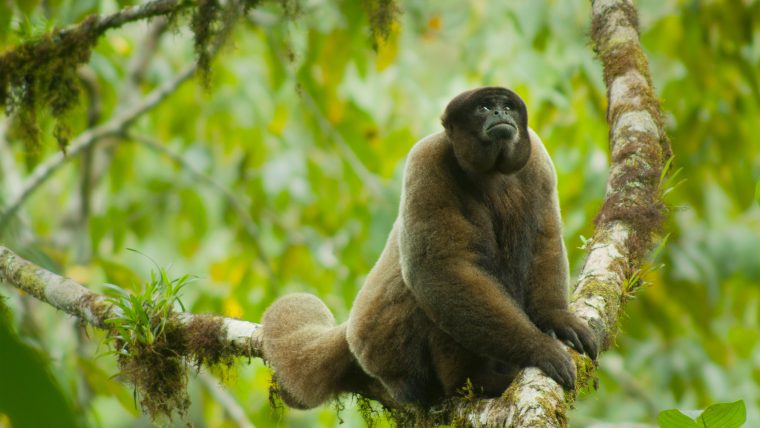
These and similar rulings constitute a trend, with each building on previous cases. Sometimes the rulings referenced are in the same country, as the Lola Limon decision, which was based in part on the reasoning of an earlier Argentine court in the case of Sandra the orangutan. Other times, courts look beyond their own borders in constructing their analysis of animals’ legal status. In the Ecuador case, which centered on a monkey named Estrellita, the court looked to decisions reached by the neighboring Constitutional Court of Colombia.
In the equally groundbreaking animal rights ruling by the High Court of Islamabad in the case of Kaavan the elephant, the court surveyed global jurisprudence regarding animal status. This detailed analysis, which helped the Pakistani court reach its decision, included cases in Latin America, e.g. the Colombian case of Chucho the bear, which was also cited by the Ecuadorian court in the Estrellita case.
Conclusion
Judges referencing other courts’ decisions, even when non-binding or extra-national, signal forward momentum in the global struggle to have animals’ interests consistently recognized — and respected — under the law. As these rulings echo and build upon one another, one hopes to see an increasing number of forward-thinking courts looking internationally for guidance in their own cases that focus on animals’ legal status.
Further Reading
- OPINION: COURT OF FIRST INSTANCE IN CRIMINAL, JUVENILE, FELONY AND MISDEMEANOR MATTERS NO. 3 LEDESMA, DIEGO ALBERTO CHAMBER 1 – ANIMAL PROTECTION ACT. ABUSE OR ACTS OF CRUELTY Number: IPP 149744/2022-0 CUIJ: IPP J-01-00149744-4/2022-0 Proceeding No: 1802321/2022. July 6, 2022.
- “Lola Limón, the first puma declared ‘non-human animal subject to rights.’” (English translation). Télam. August 2, 2022.
- Dominguez, Andres Gil. “Lights and shadows of the puma Lola Limón case” (English translation). Palabras del Derecho. August 7, 2022.
References
- Sandra and later Cecilia the chimpanzee were declared nonhuman legal persons by Argentine courts in 2014 and 2016, respectively, resulting in each animal’s transfer from the zoos where they were confined to reputable primate sanctuaries.
- Franceschini, Macarena Montes. (2022, November 4-6) Deconstructing Personhood and Standing. The Animal Law Conference, Portland, Oregon.
- Cougars are commonly called pumas in Latin America.
- The eco-park replaced the Buenos Aires Zoo, which was shut down in 2016 and all its animals relocated to nature reserves. The eco-park opened in 2018 with a new mission focused on conservation and rehabilitation. Among the reasons given by Buenos Aires officials for closing the 140-year-old zoo were “keeping wild animals in captivity and on display is degrading.” https://www.theguardian.com/world/2016/jun/23/buenos-aires-zoo-close-animals-captivity-argentina
- Argentine animal law expert Andres Gil Dominguez argues this was a missed opportunity “to issue an expansive sentence” and “to make clear the anthropocentric conception of the Civil and Commercial Code of the Nation and its objective collision” with the Argentine constitution. https://palabrasdelderecho.com.ar/articulo/3825/Luces-y-sombras-del-caso-puma-Lola-Limon-
- The Universal Declaration of Animal Rights, modeled after the Declaration of Human Rights of 1948, is a non-legally binding proclamation issued by UNESCO (the United Nations Educational, Scientific and Cultural Organization) in 1978 that recognizes fundamental rights for animals. See: https://www.animallaw.info/sites/default/files/lralvol19_1_91.pdf
Sign Up!
Join the Animal Legal Defense Fund's email list to stay up to date on lawsuits, legislation, and regulations affecting animals.
Related
-
Ecuador’s Constitutional Court Rules Wild Animals Are Subjects of Legal Rights Under the Rights of Nature
In January 2022, the Constitutional Court of Ecuador issued a landmark ruling that individual wild animals are subjects of legal rights under Ecuador’s “rights of nature” constitutional provision. The case involved a woolly monkey who was taken from the wild as a baby and kept unlawfully in a private home for 18 years.January 4, 2023 Animal Law Update -
Islamabad High Court Holds that Animals Have Legal Rights
The Islamabad High Court has held that animals have natural rights and are entitled to protection under the Pakistani constitution. The case before the court was threefold, involving an elephant held in solitary confinement at a zoo, a rescued bear who had been forced to “dance” and perform tricks, and the killing of stray dogs.October 2, 2020 Animal Law Update -
Governor Newsom Signs Bill Protecting Wild Animals from Super-Toxic Rat Poisons
California Governor Gavin Newsom signed the groundbreaking California Ecosystems Protection Act (AB 1788) into law, significantly limiting the use of second generation anticoagulant rodenticides to protect the state’s native wildlife.September 29, 2020 Press Release


